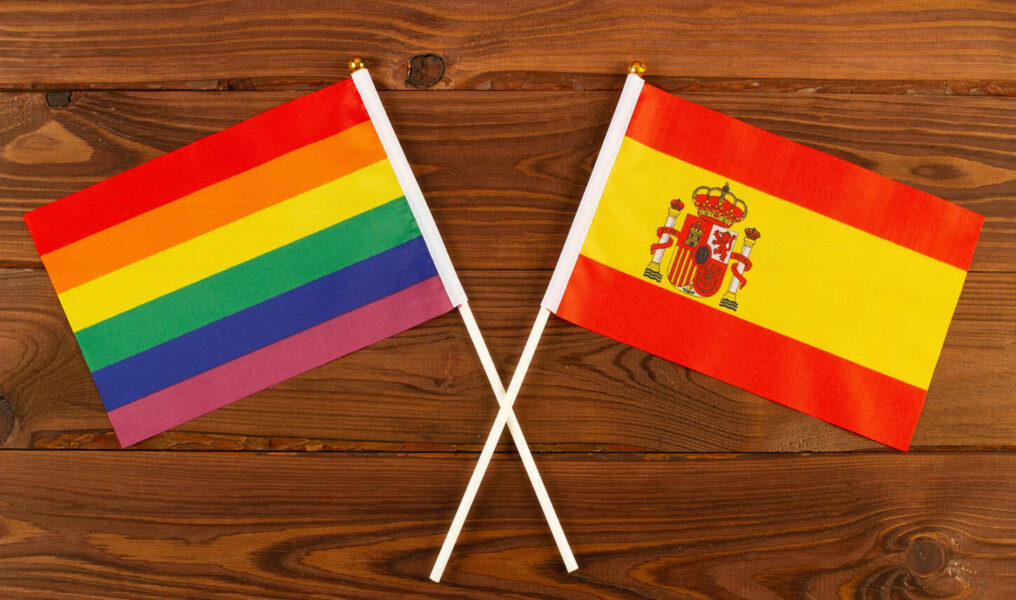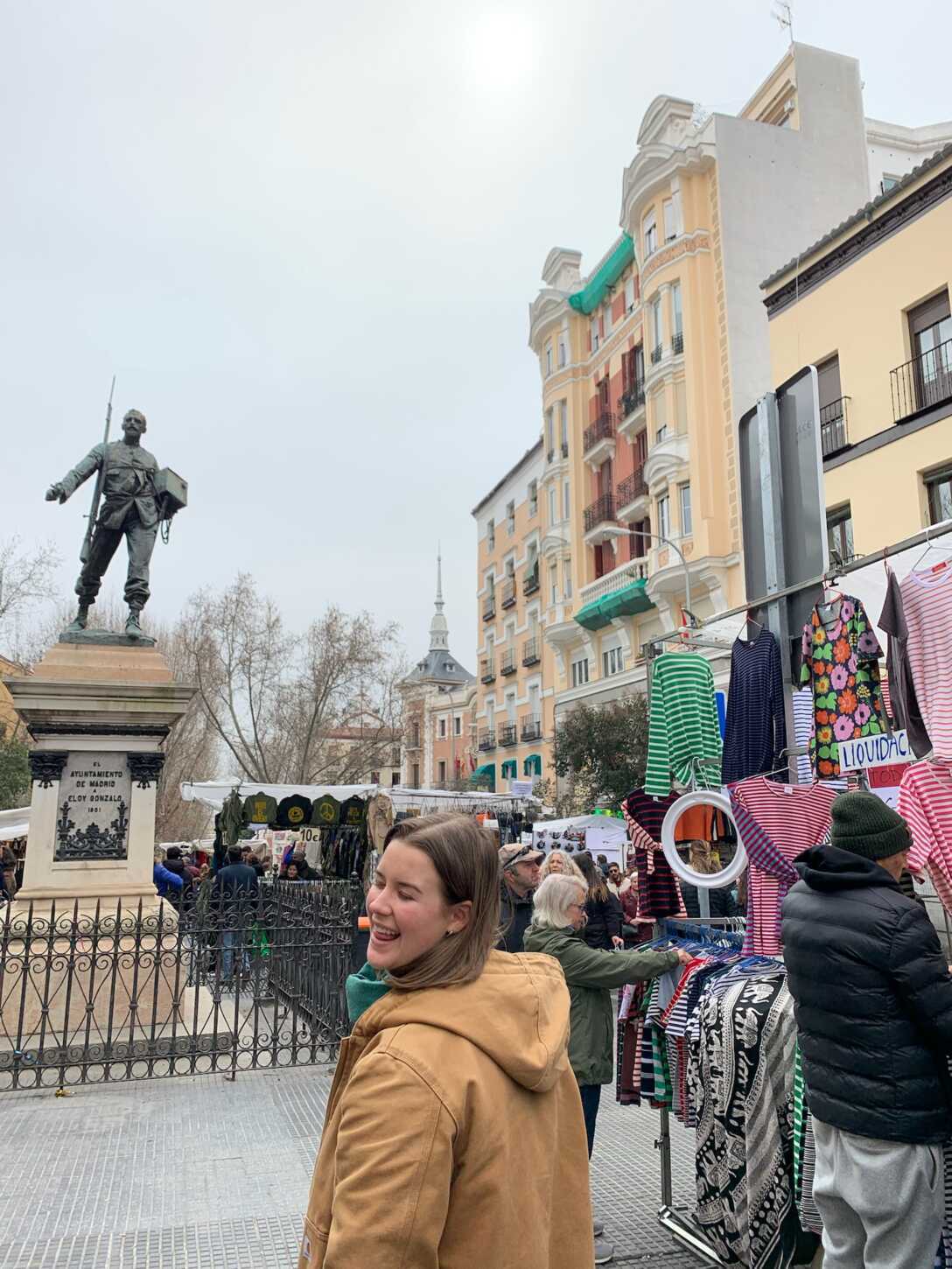Moving to Spain Has Helped Me Imagine a Queer Future for the U.S.
Hope sweet hope

Once I graduated college, I packed my bags and didn’t look back. My dreams to study abroad had been dashed by the pandemic, but with a diploma to my name, I was ready to see the world and start my education beyond the classroom.
I settled on Madrid, an urban center where I could teach English but otherwise live in my second language, Spanish. Part of my search process included Googling queries like, “Are there lesbians in Madrid?” and “Is Madrid queer-friendly?” I can’t quite remember what I ended up reading, but it must have been convincing enough since I moved to Madrid, where I have lived for over six months. With each passing week, the city feels more like home. Still,
I sometimes feel my heart pulled in two directions.
On the one hand, there is the United States, where I grew up, attended high school and college, and had my first queer kiss and my first love. I remember my first Pride parade, in Hartford, Connecticut. I saw a drag king perform Bruno Mars’ song “Treasure” and thought that it was super hot, and maybe that could be me. I slowly grew comfortable being openly queer, and learned to seek out LGBTQ+ spaces in my community.
But even in 2017, coming out to my high school classmates was not an easy process. Ignorant comments from strangers didn’t really bother me, but the ones from friends did. My first relationship was fraught with complications because my then-partner´s family was deeply homophobic; if they were dating a woman, they wouldn’t allow them to live at home.
Beyond my own personal experience, there’s also U.S. politics, which is steeped in turmoil and controversy around queer and especially trans people’s right to merely exist. Every day I open social media and see headlines about regressive laws banning drag queens and bills criminalizing trans identities. An ocean away, I often feel powerless and deeply discouraged.

Then, there is Spain, the country I now tentatively call home.
The nation's government recently passed a bill that allows anyone over the age of 16 to change their gender on their ID card, with no requirement for medical documentation of gender dysphoria. Spain also legalized gay marriage a whole 10 years before the U.S. did. Homophobia and transphobia do exist in Spain; there are certainly people and political groups that want to restrict the rights of the LGBTQ+ community. It is true, however, that queer and trans people can express themselves outwardly without fearing for their lives.
Where I live in Madrid, there is an entire neighborhood, called Chueca, dedicated to LGBTQ+ people. It’s hard to step out on the street without seeing lesbians pressed up against one another or gay people holding hands. A few days ago, I returned home to my apartment to see two drag queens embracing in the doorway of the building. I politely asked them to move aside, and they obliged, laughing, without letting go. Such queer joy and visibility is simply the norm here, but for me, it feels like a revelation.
In some moments I feel the dissonance between my country of origin and my new home quite acutely. When I heard of the shooting at Club Q in November I was shaken and not sure where to turn; my queer community at home was far away, and my queer community in Spain did not feel the same connection to the tragedy that I did.
A few nights afterwards, I went out to a gay club with my partner and some friends. It dawned on me later that I hadn’t thought to check the exits, or share my location with a friend, or stay sober in case something bad happened. These precautionary measures simply weren’t necessary. Amidst the revelry, I felt guilty that I could dance and celebrate without worrying, while people at home grieved.
But I do not think that guilt is the solution to the rampant hate in the U.S., nor to any problem. Instead, I have come to prioritize cultivating joy with queer people I love and a culture that, for the most part, loves us back. Dancing and singing and embracing does not mean that I am turning my back on queer people in my home country, but rather, that I am celebrating how our lives could be and what our existence could mean.
Not every LGBTQ+ person can move abroad and start over, nor should they. Instead, as queer people in and from the U.S., we can turn to other cultures and societies to re-construe what our home could be like. Acknowledging legislative progress and queer joy in other cultures can push us forward in our fight for rights and recognition at a time when such fundamental aspects of our humanity are threatened.
There is hope, and there is precedent. When our imaginations for a queer future grow tired or fail us, we can look to countries like Spain that already champion acceptance and find solace and inspiration. We can remind ourselves what home could be like and do everything in our power to create that, no matter where we are.









